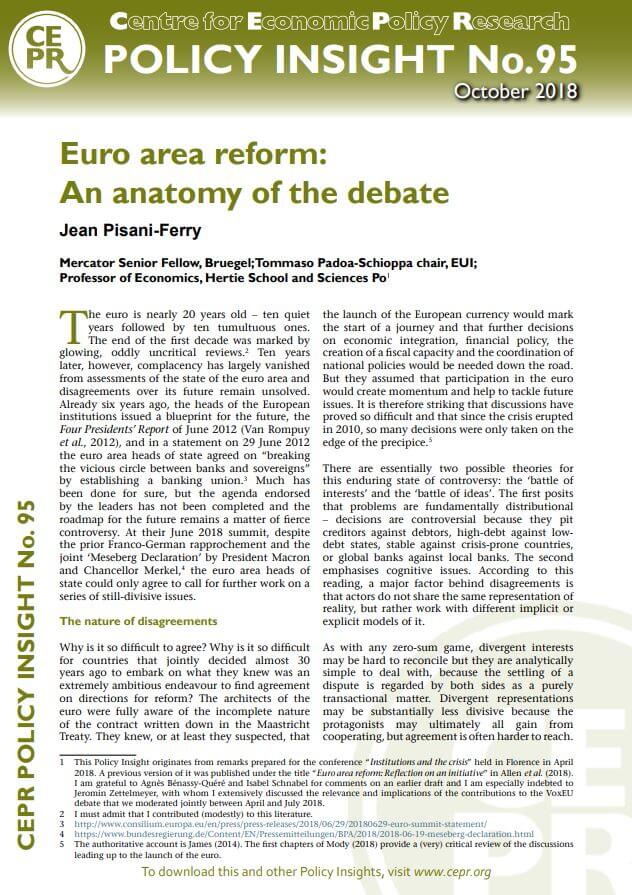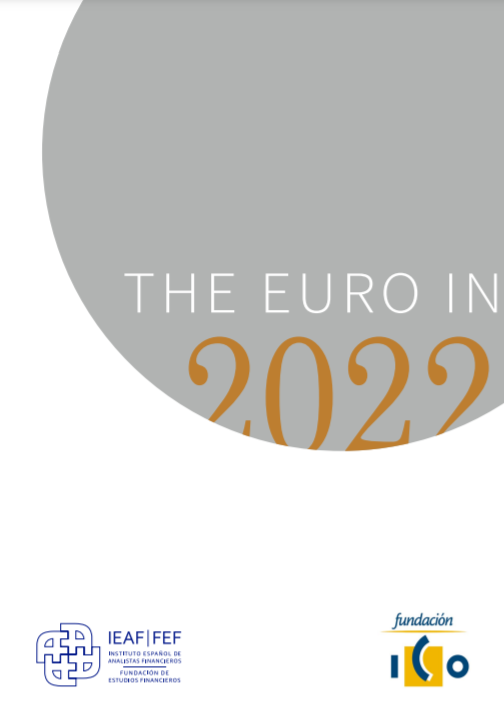External Publication
Euro area reform: An anatomy of the debate
A year ago, a group of 14 French and German economists joined forces with the aim of forging common proposals for euro area reforms. Their report gave rise to a lively discussion among officials and academics. This Policy Insight summarises the group's proposals and also addresses some of the points raised in a subsequent VoxEU.org debate on the topic.
This article was published in Centre for Economic Policy Research Policy Insight No 95 (October 2018).
The euro is nearly 20 years old – ten quiet years followed by ten tumultuous ones. The end of the first decade was marked by glowing, oddly uncritical reviews. Ten years later, however, complacency has largely vanished from assessments of the state of the euro area and disagreements over its future remain unsolved. Already six years ago, the heads of the European institutions issued a blueprint for the future, the Four Presidents’ Report of June 2012 (Van Rompuy et al., 2012), and in a statement on 29 June 2012 the euro area heads of state agreed on “breaking the vicious circle between banks and sovereigns” by establishing a banking union. Much has been done for sure, but the agenda endorsed by the leaders has not been completed and the roadmap for the future remains a matter of fierce controversy. At their June 2018 summit, despite the prior Franco-German rapprochement and the joint ‘Meseberg Declaration’ by President Macron and Chancellor Merkel, the euro area heads of state could only agree to call for further work on a series of still-divisive issues.












